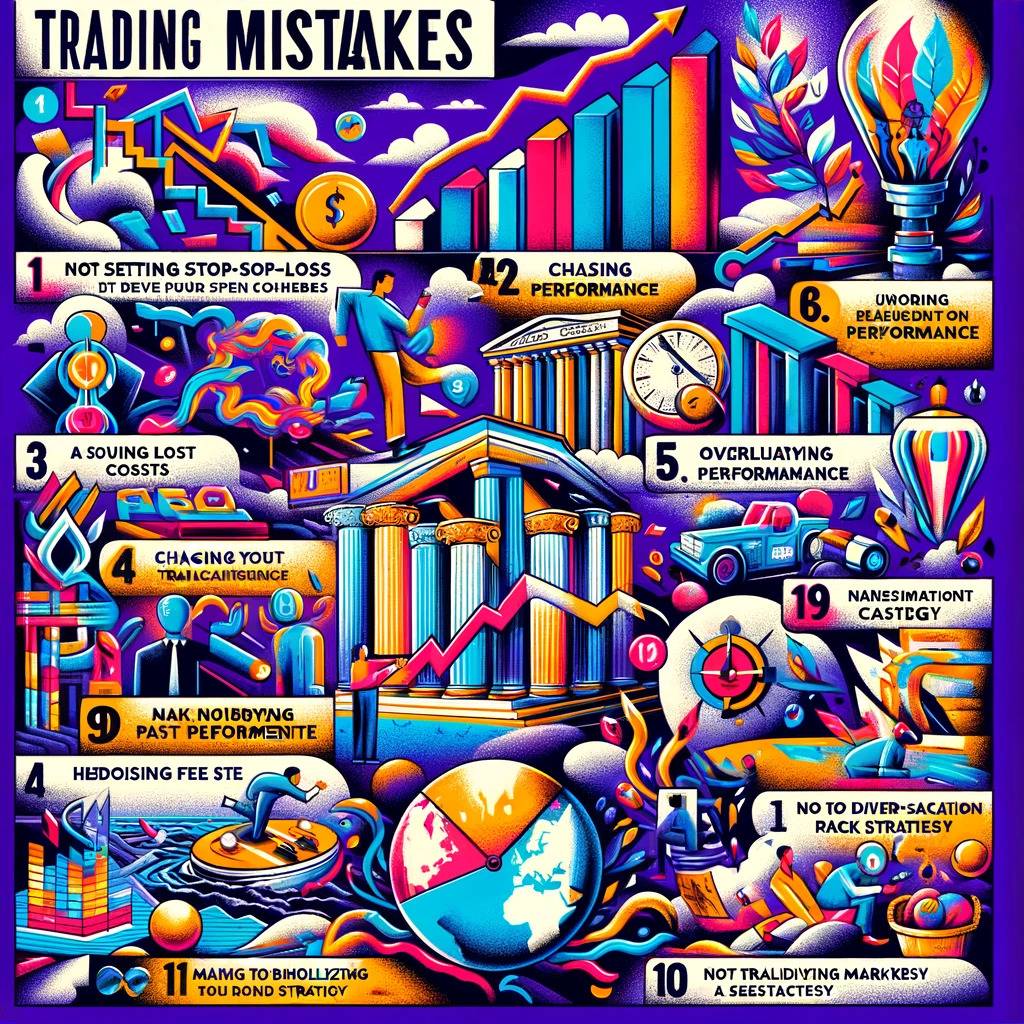
Binvestor is a multi-asset investment platform.
 Trading
Trading
Trading in financial markets can be an exhilarating journey, but it’s essential to tread carefully to avoid common pitfalls that can erode your profits and undermine your success. In this blog post, we’ll explore the top 10 mistakes to avoid in trading, offering valuable insights to help you navigate the markets with confidence and discipline.
One of the biggest mistakes traders make is diving into the markets without a well-defined trading plan. A solid plan should outline your goals, risk tolerance, entry and exit strategies, and money management rules. Without a plan, emotions can take over, leading to impulsive decisions and poor outcomes.
Successful trading is not just about making profits; it’s also about protecting your capital. Neglecting risk management principles, such as setting stop-loss orders and diversifying your portfolio, can expose you to significant losses. Prioritize protecting your capital over chasing high returns.
Emotions have no place in the world of trading. Fear and greed can cloud your judgment and lead to irrational decision-making. Learning to control emotions, stick to your trading plan, and avoid impulsive actions is crucial for long-term success.
Overtrading is a common pitfall, especially for beginners eager to make quick profits. Trading excessively can lead to increased transaction costs, diluted focus, and higher chances of making poor decisions. Quality over quantity is a key principle in trading.
Experiencing losses is inevitable in trading. However, the mistake lies in attempting to recover losses quickly by taking on excessive risks. This can lead to a destructive cycle of mounting losses. Instead, focus on learning from mistakes, adjusting your strategy, and maintaining a disciplined approach.
Successful traders use a combination of fundamental and technical analysis to make informed decisions. Neglecting either aspect can leave you with an incomplete understanding of the market. Strive for a balanced approach that incorporates both types of analysis.
Patience is a virtue in trading. Waiting for the right opportunities and allowing trades to develop according to your plan is crucial. Impatience can lead to premature entries or exits, undermining the potential success of a trade.
While it’s valuable to seek insights from experienced traders, blindly following someone else’s advice without understanding the reasoning behind it is risky. Develop your own knowledge and trading skills to make informed decisions rather than relying solely on others.
The financial markets are dynamic, and staying informed about changes in economic conditions, market trends, and new trading strategies is essential. Continuous learning and adapting to evolving market conditions are vital for sustained success.
Maintaining detailed records of your trades is crucial for self-assessment and improvement. Analyzing past trades helps you identify strengths and weaknesses in your strategy, enabling you to make informed adjustments for future success.
By avoiding these common mistakes and adopting a disciplined and informed approach to trading, you can increase your chances of long-term success in the markets. Remember that trading is a journey, and the key is to learn from both successes and setbacks, continually refining your skills and strategies.

